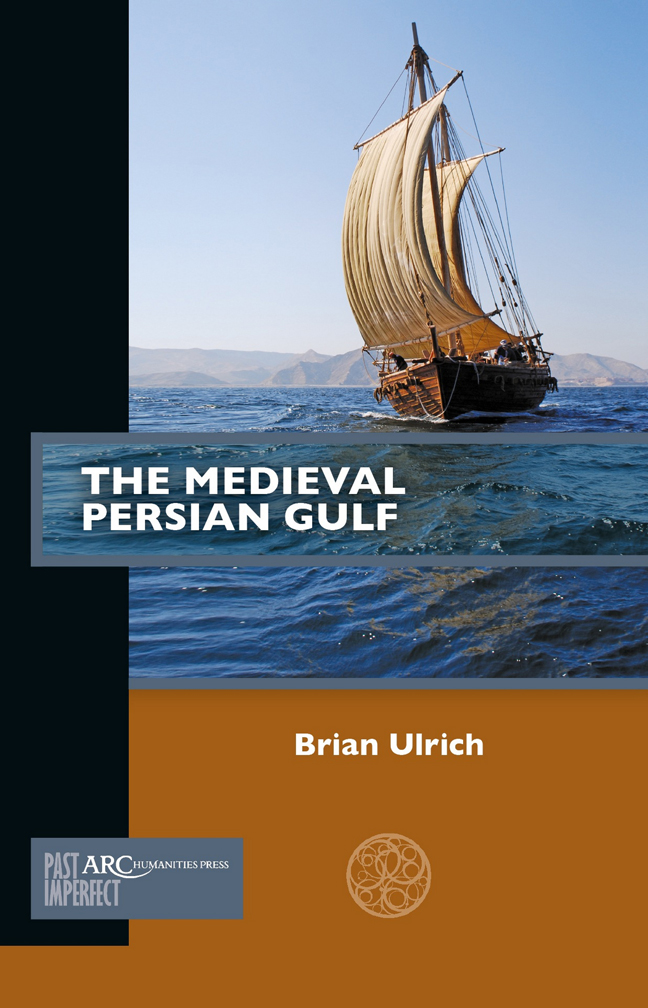Book contents
- Frontmatter
- Contents
- List of Illustrations
- Maps
- Timeline
- Introduction
- Chapter 1 Religious Diversity of the Early Islamic Era
- Chapter 2 Ethnic Diversity
- Chapter 3 The Society of Trade in the Early Islamic Period
- Chapter 4 New Trade Centres after 1000
- Chapter 5 Islamic Sects in the Late Medieval Gulf
- Chapter 6 Hormuz
- Conclusion
- Further Reading
Chapter 3 - The Society of Trade in the Early Islamic Period
Published online by Cambridge University Press: 20 February 2024
- Frontmatter
- Contents
- List of Illustrations
- Maps
- Timeline
- Introduction
- Chapter 1 Religious Diversity of the Early Islamic Era
- Chapter 2 Ethnic Diversity
- Chapter 3 The Society of Trade in the Early Islamic Period
- Chapter 4 New Trade Centres after 1000
- Chapter 5 Islamic Sects in the Late Medieval Gulf
- Chapter 6 Hormuz
- Conclusion
- Further Reading
Summary
Sinbad the Sailor is often presented as a ship captain, and in the 2003 Dreamworks film was even a pirate. However, in classical Arabic the term bahri was used of anyone who trav-elled by sea, and The Arabian Nights character was actually a merchant who booked passage for himself and his goods for trading voyages. The framing of the tales is that a poor por-ter, also named Sinbad, discovers his namesake’s luxurious home and muses that some continually struggle to get by when others live lives of such ease. Sinbad the Sailor hears the porter and summons him in to talk, and the tales are thus framed as a story of how the seafaring merchant earned his wealth through entrepreneurship and ingenuity amidst chal-lenges earlier in life.
Even though their present didactic form took shape later, the Sinbad stories come from a tradition of Indian Ocean tales that goes all the way back to ancient Egypt and Mesopotamia. We have a collection of such tales in the Book of the Wonders of India, attributed in later medieval times to an otherwise unknown Buzurg b. Shahriyar al-Ramhurmuzi, but compiled from Gulf informants by a Basran religious scholar named Abu ˁImran al-Sirafi and presented in 968 to a vizier for the ruling dynasty of Egypt. A similar book, though written more as an organized guide, is the Accounts of China and India which consists of updates and supplements made by one Abu Zayd al-Sirafi to an incorporated earlier text.
These stories focus on the dangers of the sea and distant lands, but also the wonders to be seen, and were a common folklore among the maritime classes. Their spread to other areas burnished the reputation of the great trading cities, much as did the wonders sometimes sent from them. In the early 900s, when the Abbasids ruled Sohar for a time, their governor there sent gifts of black gazelles, a golden statue of an Indian deity, and birds which spoke Sanskrit and Persian. To these were added more exotic legends such as an embalmed cat-sized ant from eastern Africa. Enabling the stories of such wonders, however, were everyday lives of labourers on ships and docks, in the making or collection of products, and producing the everyday essentials necessary for life.
Cities of Trade
In decades immediately before Islam, several annual market fairs were found along the Gulf coast.
- Type
- Chapter
- Information
- The Medieval Persian Gulf , pp. 43 - 58Publisher: Amsterdam University PressPrint publication year: 2023



